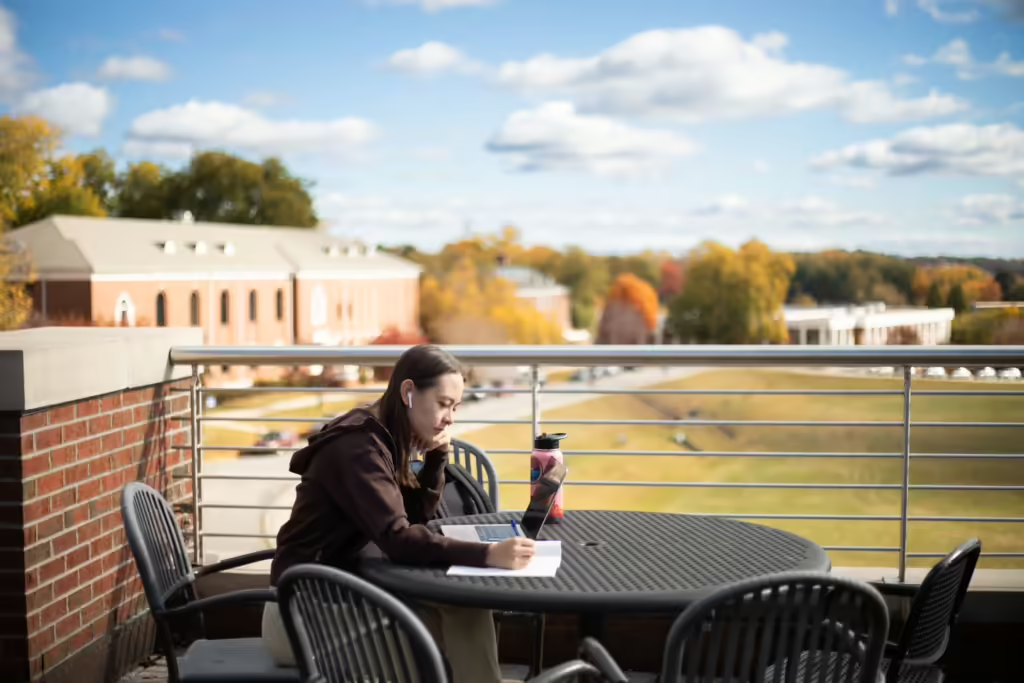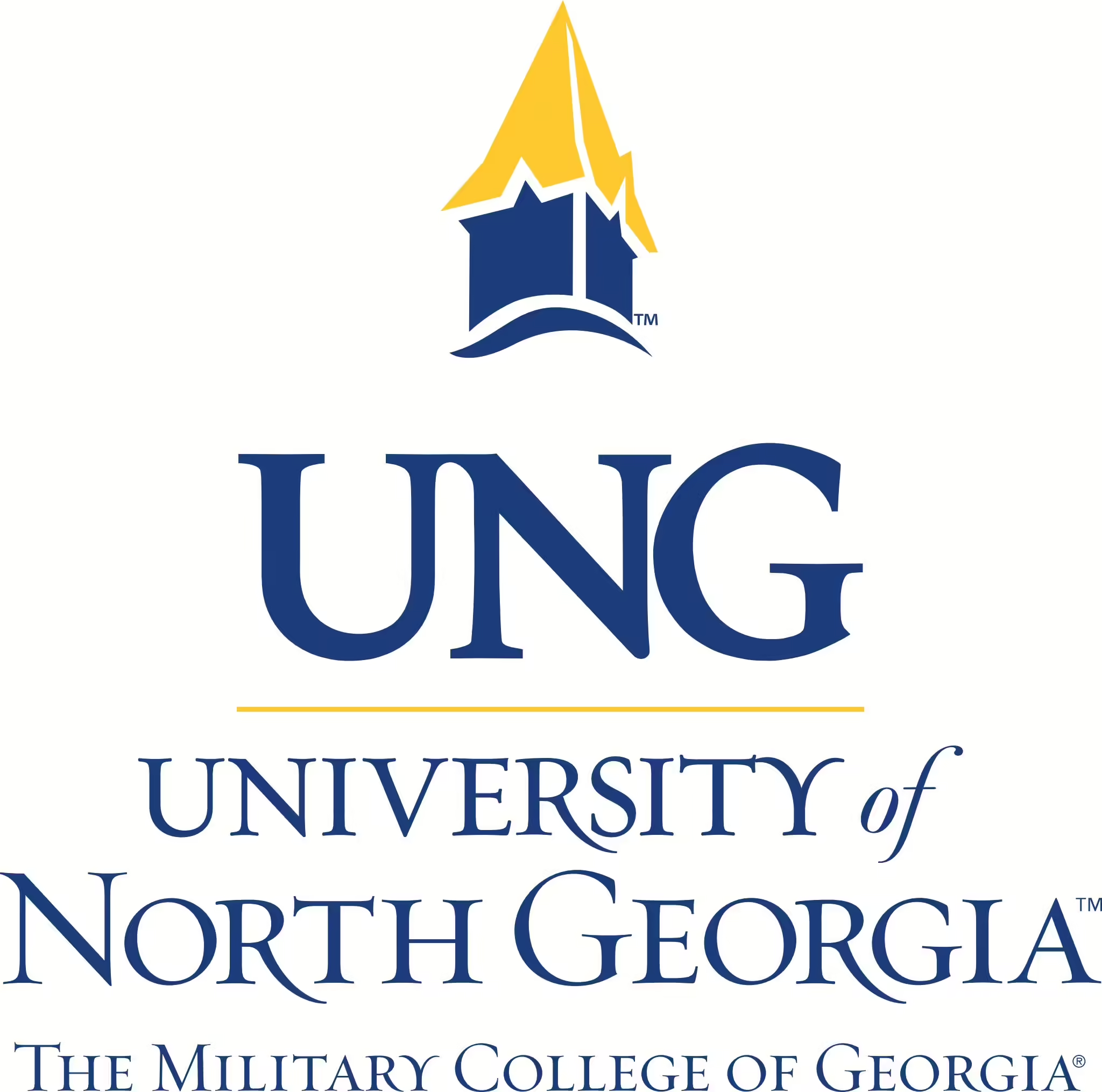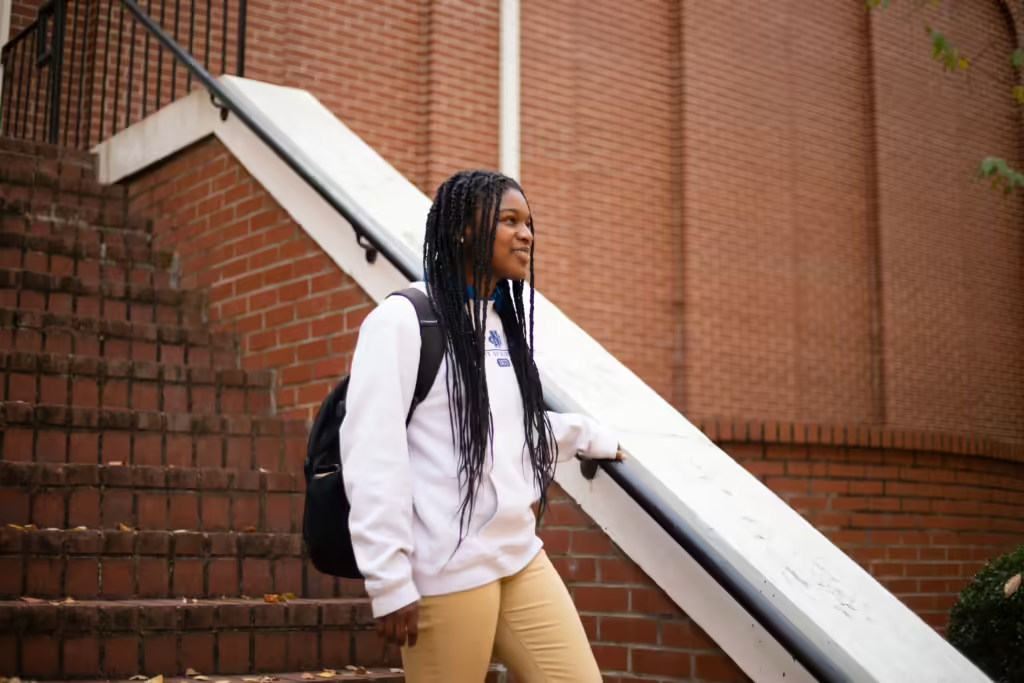
The University of North Georgia (UNG) is uniquely positioned to help shape the future of higher education thanks to its willingness to think outside the box in crafting experiences that will prepare students to serve as leaders in an ever-changing world. UNG does this in three specific ways:
Seeing its communities as a classroom
UNG understands that its role as a university is not confined to the four walls of a classroom. Students gain valuable experience through service learning, innovative teaching practices, internships, and other opportunities that enable them to form connections with businesses, nonprofits, and government agencies in our communities.
This can take a variety of forms. A first-year literature course in spring 2024 involved students creating their own children’s books and reading the stories to children at local bookstores. A pair of visual arts courses enabled students to create murals in Dahlonega and Gainesville. The mural in Dahlonega will help serve as a vital tourism landmark in downtown, and the murals in Gainesville’s Avita Behavioral Health Crisis Center will provide a vibrant backdrop for those receiving services there.
UNG also seeks the feedback of groups in its communities to incorporate into how it trains students.
“We understand that we cannot continue business as usual in higher education,” UNG President Michael Shannon said. “We are seeking to create a university that has never existed. With the built-in advantages for UNG, we will become the most dynamic, innovative, legacy-making university in America. We will deliver like never before for our region, our state, and the nation, and we will be held accountable to our impact.”
The power of its five campuses
UNG’s unique five-campus footprint serving primarily a 30-county region in northeast Georgia also allows it to maximize its impact on the state’s economy (estimated at $737 million in the latest University System of Georgia figures) and serve the needs of the towns surrounding those campuses. Each campus has its own unique character as it accomplishes UNG’s mission to change the trajectory of students’ lives.
The Blue Ridge Campus in rural Fannin County is opening many students’ eyes to the idea that a college education could impact their family in a positive direction for generations. This possibility, not that long ago, did not seem like a realistic option, but with a campus of one of the state’s largest public universities nearby, students are now able to spend a year or two on UNG’s Blue Ridge Campus while still working and living in their home community before continuing toward a four-year degree on another campus. This makes college more affordable and accessible.
Situated in rapidly growing Forsyth County, UNG’s Cumming Campus is opening a 27,300-square-foot addition this month. The expansion has allowed UNG to add bachelor’s degrees in Cumming in anticipation of the new space that provides a capacity for future enrollment of 2,200 students, particularly in health care and technology-centric programs in demand along the growing Ga. 400 corridor. UNG currently has about 1,000 students at the Cumming Campus. The $15.5 million expansion enhances the previous 36,000-square-foot Cumming Campus building after the project received funds in the Fiscal Year 2022, Fiscal Year 2023, and Fiscal Year 2024 state budgets. The 75% increase in floor space provided by the expanded facility will allow for the addition of 11 new instructional areas.
UNG’s lone residential campus is in Dahlonega, which also houses the university’s Corps of Cadets and NCAA Division II athletics program. The university is one of the nation’s six senior military colleges, and it is the only SMC that prepares second lieutenants solely for the Army. Serving more than 7,000 students, the campus recently opened the Cottrell Center for Business, Technology & Innovation and is scheduled to build a Military Science Center and STEM Excellence Center in the coming years. These cutting-edge facilities are allowing UNG to educate the region’s workforce in ways that prepare these students for what they will face in their jobs upon graduation.
The Gainesville Campus is preparing students for an array of career fields, including Georgia’s booming film industry and health care. It also trains students in the poultry industry and other scientific disciplines. Additional space from the former Lanier Technical College has allowed for specialized learning spaces in both the film and health care programs.
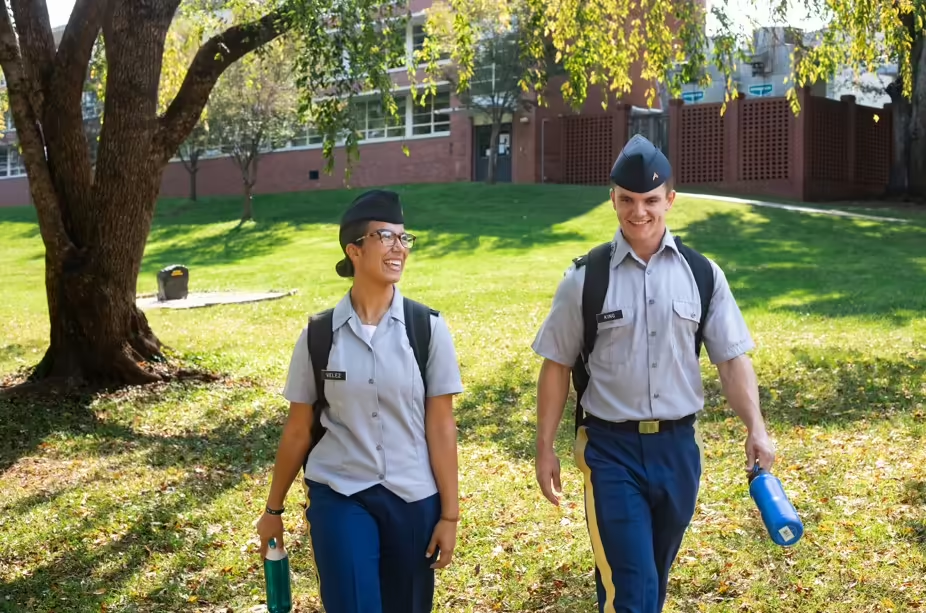
UNG’s Oconee Campus allows students a nearby option to spend the first year or two of their college experience, with the option to transfer to one of UNG’s larger campuses as they advance further on their degree paths. Additionally, UNG offers some of its bachelor’s, master’s, and doctoral degrees in the online format to meet the needs of working professionals. The in-person campuses, ranging from about 230 students to more than 7,000, each lean into the needs of the communities that surround them and provide a curated experience that enables students to understand they are more than a number. They are the reason UNG exists, and the university aims to help them unleash their potential and hone innovative skills that will enhance their communities.
“The strength of UNG is our five campuses,” Shannon said. “What other university can have the kind of impact that UNG is able to across our service area? We are committed to capitalizing on this wide reach to meet our region’s workforce needs.”
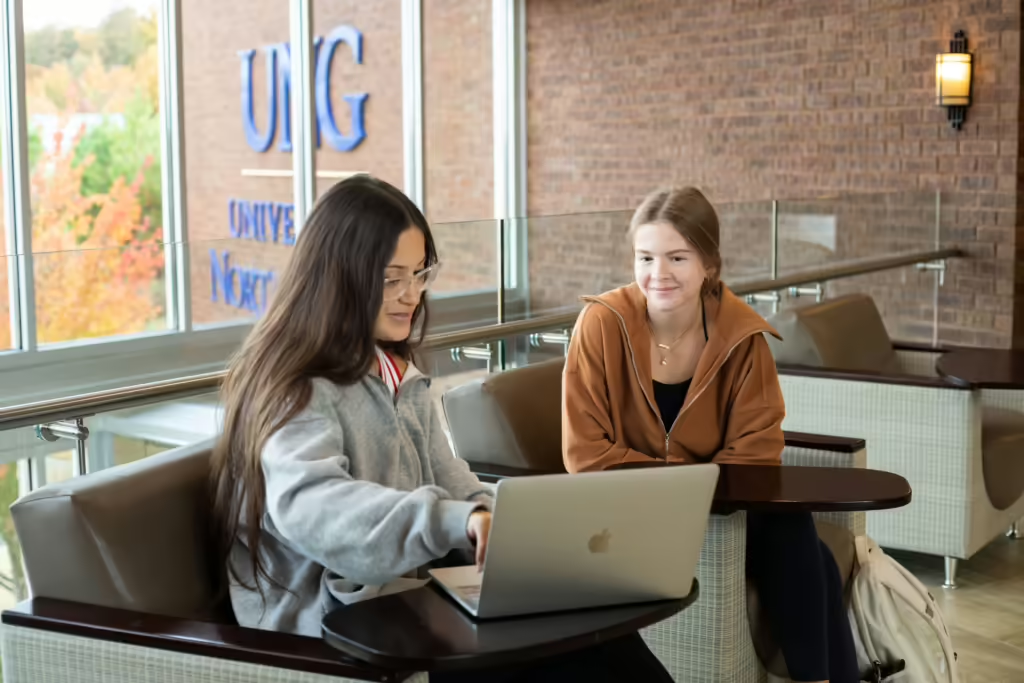
Creating value through its NCAA Division II athletics program
Finally, UNG is committed to becoming the most value-added NCAA Division II athletics program in the nation. For years, the Nighthawks have excelled in competition, in the classroom, and in the community. The university’s softball program won NCAA championships in 2015 and 2023, and Journey Gurley won the NCAA pole vault championship in 2021. These successes and the hard work of many student-athletes, coaches, and administrators have prepared UNG to set the standard for high-quality athletics in the ever-changing landscape of the 21st century.
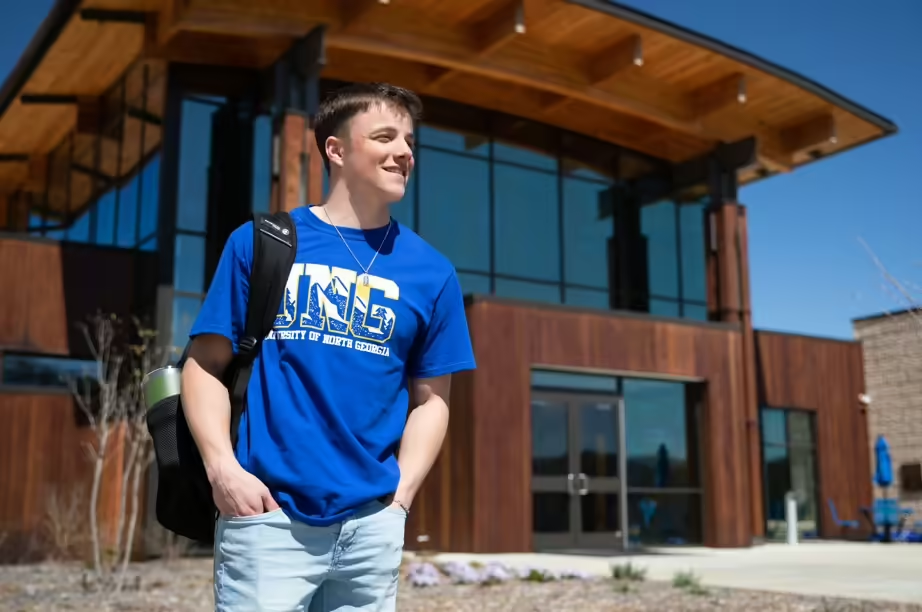
The past year served as one of the greatest proof points of continued upward momentum for UNG athletics. Starting with a regular-season Peach Belt Conference (PBC) championship in women’s soccer, the accomplishments and accolades continued to pour in throughout winter and spring sports as well. The UNG men’s basketball team won its first-ever PBC tournament title, then hosted and won the NCAA Southeast Regional to reach the Elite Eight in Evansville, Indiana. The Nighthawks also won a regular-season softball conference title. The UNG men’s golf and women’s tennis teams each advanced to their respective NCAA championships held in May in the Orlando, Florida, area after the men’s golf team had won its first PBC title. The men’s golf team played to the wire in the NCAA championship match, and the women’s tennis team reached the national semifinals.
In an era of the transfer portal and NIL, UNG is carving out its own niche as an NCAA Division II powerhouse. The school also earned the Commissioner’s Cup as the top program in the PBC for 2023-24, in addition to raising the most funds for Make-A-Wish.
“UNG Athletics has never been stronger. Thanks to President Shannon’s leadership, we are accelerating the success of a long-time powerhouse to even greater heights,” Athletics Director Mary Rob Plunkett said. “The future is brighter than ever for Nighthawk Nation.”
